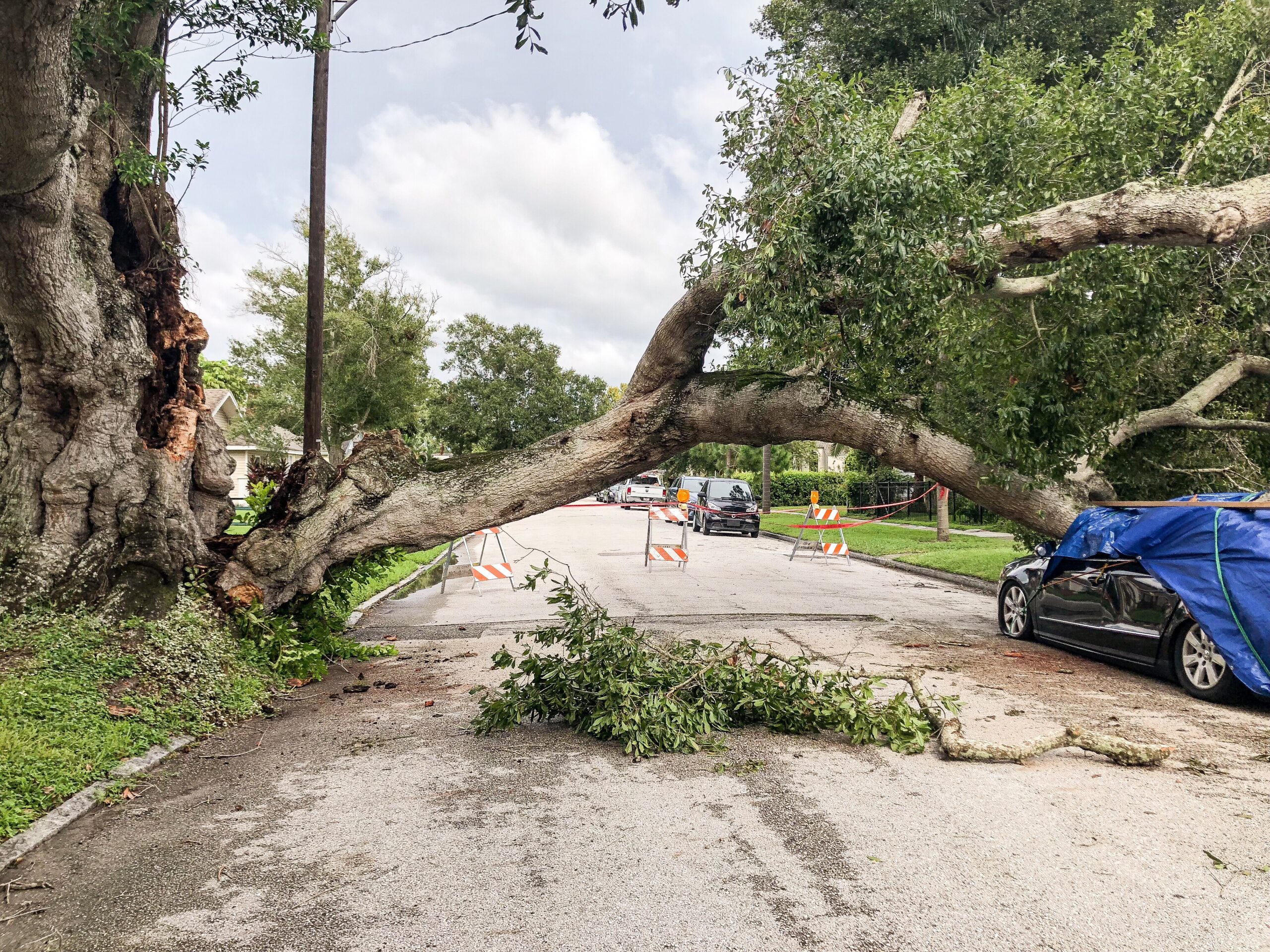
Natural disasters, such as hurricanes and storms, can leave communities in disarray. Unfortunately, alongside the damage and uncertainty, there’s often another threat lurking: scammers who prey on vulnerable homeowners and businesses in the aftermath of a storm. These con artists pose as contractors, government agents, or charitable organizations, offering fake services or collecting donations with no intention of delivering help. To ensure you don’t fall victim to these scams, it’s important to stay vigilant and informed.
Here are some practical tips to help you avoid being scammed after a storm:
1. Verify the Contractor’s Credentials
After a storm, you may need repairs to your roof, windows, or property. This is where scammers posing as contractors swoop in, offering low-cost or “emergency” repair services. Before agreeing to any work:
- Check their license and insurance: A legitimate contractor will always be licensed and carry insurance. You can verify their credentials through your local licensing board or government website.
- Ask for references: A trustworthy contractor should have a list of satisfied customers they’ve worked with in the past. Follow up on these references to verify their experience.
- Beware of door-to-door offers: While some legitimate contractors do canvass areas hit by storms, this is also a common tactic used by scammers. Be cautious of anyone pressuring you to make a quick decision or asking for payment upfront.
2. Avoid Upfront Payments
One of the biggest red flags is when a contractor asks for a significant portion of the payment before starting the work. Scammers often demand upfront payments and then disappear without completing (or even starting) the job. To protect yourself:
- Never pay in full upfront: A reputable contractor will not ask for full payment before work is completed. It’s common to pay a small deposit, but the bulk of the payment should be made after the job is done to your satisfaction.
- Use a contract: Always have a written contract outlining the scope of work, the payment schedule, and deadlines. This gives you legal protection and ensures both parties understand the terms.
- Avoid cash payments: Paying in cash makes it nearly impossible to track or recover your money if something goes wrong. Use a traceable payment method, such as a credit card or check.
3. Watch Out for “FEMA” or Government Impersonators
In the aftermath of a storm, scammers often impersonate government officials, claiming they need your personal information or payment to provide assistance. FEMA and other government agencies never ask for money upfront to process aid, nor will they send someone to your home without prior notification. To avoid these scams:
- Ask for identification: Always ask for proper identification if someone claims to be from a government agency. Official representatives will have credentials and a clear reason for visiting your home.
- Don’t share personal information: Be cautious when asked to provide sensitive information, such as your Social Security number or bank details, unless you are certain you’re dealing with a legitimate source.
- Verify phone calls or emails: If someone contacts you claiming to be from FEMA or another agency, ask for their name and verify the legitimacy of the request by calling the official hotline or visiting their website.
4. Research Charitable Organizations Before Donating
In times of crisis, many people are eager to help by donating to disaster relief efforts. Unfortunately, scammers take advantage of this goodwill by creating fake charities to collect donations. To make sure your money is going to a legitimate cause:
- Research the charity: Use websites like Charity Navigator or GuideStar to verify the legitimacy of an organization. Ensure they have a proven track record of providing aid in disaster situations.
- Beware of high-pressure tactics: Scammers often push for immediate donations and ask for unusual payment methods, such as gift cards or wire transfers.
- Donate through official channels: To be safe, donate directly through the charity’s official website rather than through unsolicited phone calls or emails.
5. Be Skeptical of “Too Good to Be True” Deals
Scammers often lure people in with promises of unbelievably low prices or “miracle” fixes that sound too good to pass up. After a storm, emotions run high, and you may be desperate to get things fixed as quickly and cheaply as possible. However, if an offer seems too good to be true, it likely is.
- Research market rates: Get multiple quotes from different contractors to understand the average cost for the work you need. Extremely low estimates can be a sign of fraud or substandard work.
- Don’t rush into decisions: It’s natural to want things repaired quickly, but rushing into an agreement without doing proper research can cost you more in the long run.
6. Stay Informed with Local Authorities
Local authorities, such as law enforcement or consumer protection agencies, often issue warnings about common scams circulating in your area after a storm. Stay informed:
- Check local news and government websites: They often publish updates about scams targeting your community.
- Report suspicious activity: If you suspect someone is trying to scam you or others, report the incident to your local authorities or the Better Business Bureau.
Conclusion
In the aftermath of a storm, it’s essential to take your time, ask questions, and do your due diligence when dealing with contractors, government officials, or charitable organizations. By staying vigilant and following these steps, you can protect yourself from scams and focus on what really matters—getting your life back on track.
Stay safe, stay informed, and don’t let the scammers win!
